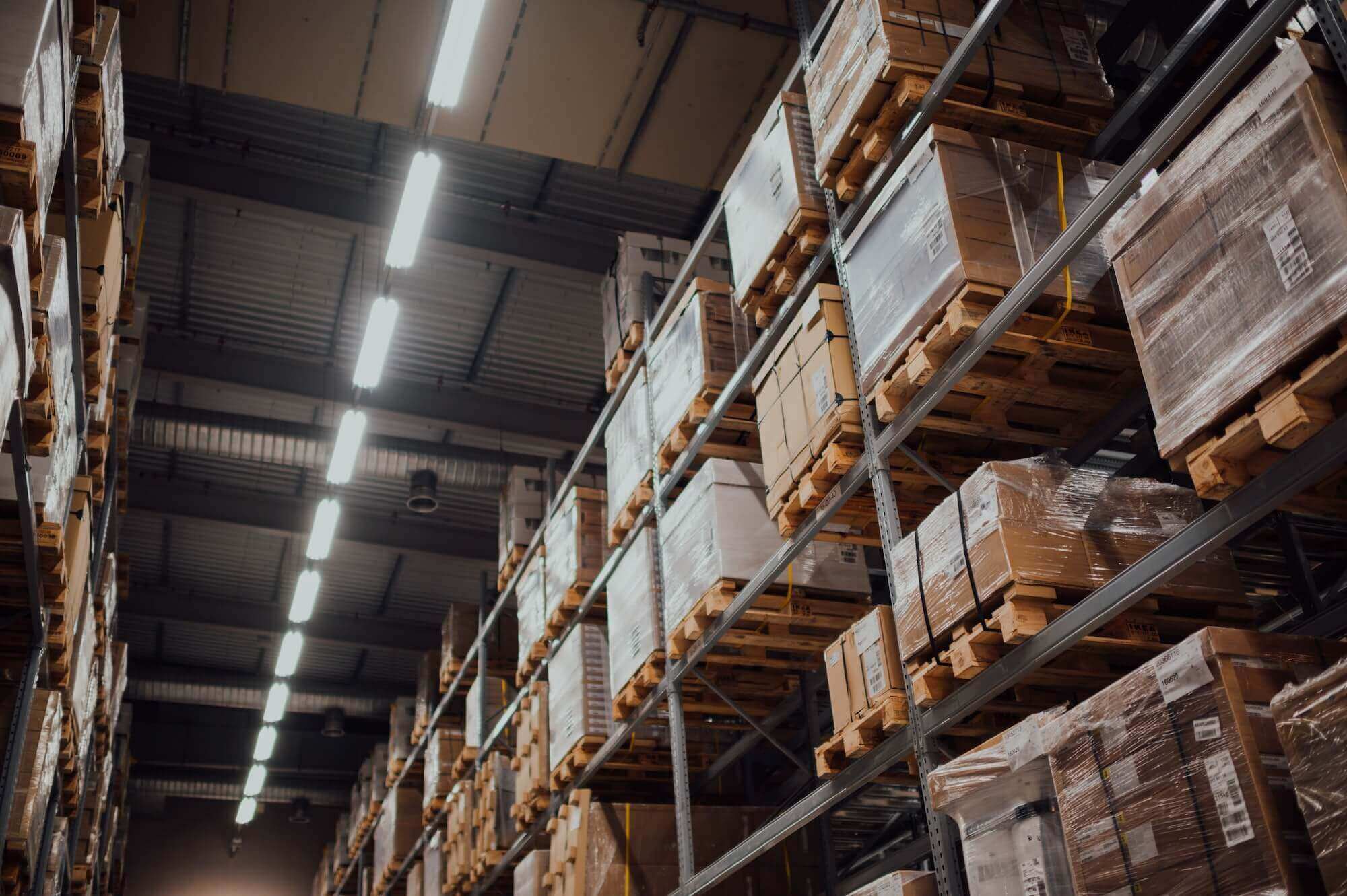E-commerce Logistics: a Deep Dive into the 3PL Model


Subscribe now! Receive 15% discount.
Don’t miss out – get 15% off your first order when you join the newsletter. It’s fast, free, and kinda smart.
You're now subscribed!
In this article:
This guest post was written by Augustin Martinez, Junior Content Manager at byrd (France).
byrd's challenge: to help e-merchants develop and revolutionise e-commerce logistics.
Your number of orders exploded over the holiday season. Your online store is successful, although your logistics remains an area of improvement. You are curious because you have been hearing more about the importance of e-commerce logistics (or e-fulfilment) as success factors in e-commerce.
Well, you have come to the right place. Here, you’ll find all the information you need to get your hands on your next growth lever.
What you will learn in this article:
- E-commerce logistics: what are we talking about?
- How to outsource your e-logistics?
- The advantages of e-fulfilment services for your online store
E-commerce logistics: what are we talking about?
The term e-commerce logistics (or e-logistics for short) refers to every process involved in processing orders between the e-commerce store and the end customer, both in terms of outbound orders and returns. This includes all the associated processes and steps, from storage to delivery:
- Acceptance of the order
- Storage
- Picking
- Maintenance of goods
- Inventory management
- Packaging
- Postage
- Shipping to the end customer
- Management of returns

As the ‘E’ suggests in the name, we are only talking about sales via online stores. From order validation to dispatch, questions of costs, deadlines and customer satisfaction all come into play in e-logistics.
One more thing. Your online storefront and marketing efforts aren’t the only determinants in shaping brand perception. Your logistics operation can also have a big impact – in a good or bad way.
Ask yourself: what will make a customer buy my product and not that of the competition? The way you process and deliver orders or returns can have a big saw in answering that question.
The underrated power of e-commerce logistics
The e-commerce sector in the US is expected to register +30% YoY growth in sales for 2020. This explosion in demand saw a new wave of players jump on the market. In France, 11,900 new e-commerce sites became active in the 3rd quarter alone. Worldwide, it’s estimated that 12 to 24 million e-commerce sites are currently in operation.
That’s a lot of competition.
While an upward trend had been observed for some years, the global health crisis supercharged e-commerce sales. Who hasn’t ordered a puzzle or a set of gardening tools during lockdown(s)?
In addition to this unprecedented situation, consumer behaviour is changing. Consumers are increasingly turning to e-commerce for various reasons. One of them being that there are more online sellers on the market.
Online retail offers direct-to-consumer brands an excellent opportunity to gain a foothold and successfully compete with the web giants. However, one of the biggest challenges is logistics, which requires a lot of resources to be truly effective.
Almost 12% of e-merchants are not profitable due to distribution costs
Indeed, the e-commerce logistics strategy of an online store plays a more important role in its success than one might think.
We will see, in the following sections, how a good logistics operation can allow you to reduce costs, optimise your conversion rate and increase sales.
And how does third-party logistics (3PL) fit in the field of e-commerce logistics?

In the previous part, we saw the importance of logistics and the impact on your online store. If you run a start-up or a company with a relatively limited product catalogue, order management can be “simple”. But the more you grow your inventory and sales, the more complex, costly and time-consuming it will become.
There are a few solutions out there to better manage these growing pains.
For example, third-party logistics service providers (3PLs) allow retailers and e-merchants to outsource certain elements of their distribution, warehousing and order management processes. The 3PL model is premised on the idea of bringing down the logistics costs for individual online retailers by pooling warehousing and personnel costs among many customers. This also allows them to optimise their order processing capabilities.

With the 3PL model, you focus on running your business while all your transport and logistics operations are outsourced to a third party. This e-logistics provider can also supply additional services, such as packaging (standard or customized) or returns management, in order to add value to your supply chain.
How to outsource your e-commerce logistics?
Now you know a bit more about e-logistics, the opportunity for growth it presents and the 3PL companies specialising in the field, the next question is: how do you find the right 3PL partner?
What to look for when choosing a 3PL partner
When you first start out in e-commerce, it makes sense to carry out order fulfilment in-house. However, as your business grows, you may realise at some point that you don’t have enough resources to do it all on your own – and do it well.
Besides, every minute dedicated to logistics is one less minute that could be directed to inbound marketing and growing your business.

On top of the lack of time and resources, you may not have the expertise to ensure that your logistics keeps up with your growth in sales.
It’s a good juncture to re-assess your e-commerce logistics setup and options.
Before making the choice between keeping your logistics inhouse or following the outsourcing route, you should take stock of all the costs currently involved in the process:
- Storage costs of your current operation: all charges and expenses (fixed and variable) associated with the operation of the building, business, depreciation, etc
- Material costs for the proper functioning of the supply chain (e.g., computers, tablets, apps and software, tools and machines, packaging, etc)
- Insurance costs: coverage against accidents, incidents and other damage
- Costs of your delivery service(s).
- Labour costs associated with hiring staff, training them and maintaining their safety. Plus, any additional staff required during sales peaks
The price has to be right
After making an inventory of the various costs, you can now compare your existing costs of running your e-logistics against the offers of outside providers.

It is essential to understand the pricing structure of your potential partner and see if they align with your business plan and budget.
Most e-logistics partners use activity-based pricing structures. They only bill for the services actually provided on a monthly basis. This is a flexible way to both minimise costs during downturns and support your growth ambitions.
Tips :
- Check the way they invoice for storage costs (in SKUs or cubic metres?)
- Look at the costs of packaging, as well as the scope to customise them or use your own packaging
- Find out about the carriers that your e-logistics provider uses
The advantages of outsourcing your e-commerce logistics
There you are. Now you know all the ins and outs of outsourced e-logistics, but you might be still wondering: what’s in it for me?
1) Save time
Let's start with what is arguably the main argument in favour of outsourcing e-commerce logistics: the time it can save you. By trusting a third party who will take care of order processing, cost management, transport, monitoring and the like, you will save precious time to do what you do best – and that’s selling and building your business.
Just as you are an expert on your products, there are experts in processing and delivering your products.
2) Benefit from the know-how of experts in e-commerce logistics
Following on from the first advantage, calling on a company specialising in e-commerce logistics can help to shore up quality and security in the process.
A good provider, with a few years of experience and clients from various industries, has innovative strategies to transform your supply chain into a profitable and agile operation.

In addition, this expertise can be a real asset when you start to expand globally and penetrate foreign markets.
3) Integrate optimal infrastructure
Then, the third advantage is more organisational. You may currently store your products on your premises, offices, or even a rented warehouse. It may do the job for now, but does it do the best job?
Or rather, can you achieve more productivity by processing your orders in a facility custom-built for logistics?
Outsourced e-logistics providers operate from modern warehouses with numerous and varied storage spaces, employing automated processes, transport and warehouse management systems (WHS) and Enterprise Resource Planning (ERP) software.
They are not only more efficient, but they are better suited to support the growth of your online store and cope with seasonal peaks.
4) Increase your yield
65% of consumers abandon an online store because of excessively long delivery times, according to a Sendcloud study.
The big e-commerce players set standards that are difficult for individual e-merchants to match. They have the resources to offer premium delivery options like express, overnight and same-day delivery – and swallow the costs associated with which.
By using an e-commerce logistics company, you will be able to offer more delivery options in a cost-effective manner and compete with the big end of town – not to mention increase the satisfaction of your customers.

5) Think about growth and flexibility
Flexibility is also a decisive factor in e-commerce, especially when it comes to storing and sending parcels. Your sales fluctuate, as does your growth trajectory.
Expanding your storage space or supply chain may not be a priority right now, but it helps to be prepared for where the demand does come. It could save you on costs down the track.
With the help of an e-logistics partner, new possibilities become available without the capital investment usually required upfront. For example:
- The long-term relationships between your e-fulfilment partner and their carriers can mean better prices and services
- The more your volume increases, the more you can negotiate better rates
- During peaks of activity, such as the holiday season, you can adjust your stock or change options without much fuss
6) Reduce your costs
Finally, the last main advantage of entrusting your orders to an e-commerce logistics provider relates to the cost savings that you can achieve.
Your processing capacity needs to be in line with your sales. This means hiring additional staff, increased maintenance of your premises, new storage solutions and equipment to keep up with demand. And these costs all add up.
With a dedicated e-logistics provider, extra capacity is factored in. You can future-proof yourself against these fluctuations in demand and costs.

You should also make sure that you are working with a partner who can integrate with your sales channel and/or your online store platform. This will allow you to fully automate the processing of your orders. This can lead to:
- Less time and resources spent on integration
- A transition that does not negatively affect your conversion rates and sales
- Improved customer experience and satisfaction through a complete and rapid process
Some tips while waiting to find the right e-logistics partner
While the advantages of outsourced e-commerce logistics are numerous, there are a few things you can do yourself in the meantime.
Mix-up the way you cover shipping costs
Thanks to the large e-merchants (like Zalando, Amazon, etc.), consumers have come to expect free shipping (and returns). This is a phenomenon confirmed by numerous studies showing that paid delivery has a dissuasive effect on online buyers.
For example, one in three French consumers expects delivery to be free regardless of the value of the order.
The addition of a delivery charge at check out may result in customers abandoning their shopping carts and looking elsewhere.
Tips:
- Include logistics costs in the sale price
- Offer shipping costs from a minimum order amount. This will also increase the average basket
- Localise storage according to demand and the proximity to the end customer
Offer different delivery options
Delivery to the doorstep remains the most popular method, but parcel lockers have also become increasingly popular.
Since June 2019, the number of pick-up and drop-off points (PUDO) points in Europe has reportedly grown by about 40%.
The more delivery (and also payment) options you offer, the more you will limit the potential for buyer dissatisfaction and improve the shopping experience.
Tips:
- Diversify your delivery options: express, carbon-neutral, parcel locker services, etc.
- Obtain contracts with different delivery service providers
- Outsource logistics to a specialized company that already cooperates with various carriers
Your next step
To sum up, e-commerce logistics is a key success factor in helping you develop your online store and gain a comparative advantage over your competitors.
By taking advantage of the expertise of an e-commerce logistics partner like byrd, you will be able to minimize the risk of customer dissatisfaction (delivery times and costs, returns, etc.) and make your brand stand out from the rest. In addition, if you are looking for development opportunities in new markets, you can benefit from your partner's international network.










